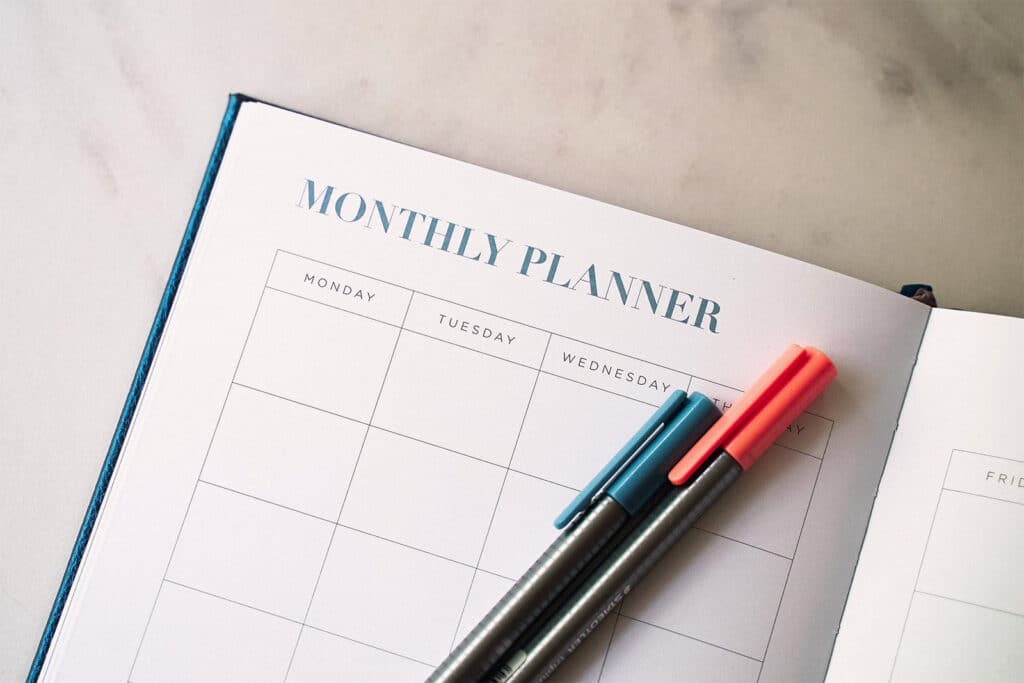Finding yourself out of work is a stressful situation that can affect anyone at any stage in life, regardless of your age or experience. It can feel like someone has swept the rug from under your feet, leaving you shaken. After the shock, it may feel like you’ve been granted unlimited freedom, but worries about financial stability can soon creep in. Whilst you’re figuring out your next steps, it’s important to stay focused and be the CEO of your own life. Although this is a stressful time, opportunities are just around the corner so there is much to be hopeful about! In the meantime, creating a routine when you're unemployed is vital, and these ten tips should keep you focused and busy.
1. Go to bed and wake up at the same time
If your routine before was to get up at 6am, go for a jog, and then take a shower before heading to work, stick to that. Just because you haven’t got work to go to doesn’t mean you can’t get yourself ready for the day! Equally, if you would normally go to bed around 11pm to ensure you get at least seven hours of sleep before a busy day, stick to that too. Creating a routine when you're unemployed and sticking to it can be tricky - it’s easy to stay up late watching TV because you know you don’t have work to get up for, but your body won’t thank you for it and it will slow you down for the job hunt.
2. Have regular activities for the morning, afternoon, and evening
Make your bed, have breakfast, shower, and change your clothes every day (into something that makes you feel comfortable but confident). That way, whatever the day throws at you, you’re awake, fresh, and prepared. Your afternoon should consist of at least one to two hours of focused work, whether that’s updating your CV, writing a cover letter, applying for jobs, or sending emails and arranging interviews. Finally, eat dinner at the same time every day as this will encourage you to complete your afternoon jobs before cooking in the kitchen at six, for example. With a daily routine, your evenings can be spent doing whatever you want.
3. List your daily chores
Create a chore schedule and tick off tasks as you go. By the time 5pm rolls around, you’ll feel like you’ve accomplished plenty! This is your opportunity to get organised: you know that drawer full of odds and ends that needs sorting out? And the windowsills and bookshelves that are collecting dust? Let’s not get started on how badly the inside of your car needs a vacuum... Organising your things and space around you will help with focusing on the next chapter of your life (clutter-free). Plus, when do you usually ever get the time?

4. Focus on your goals whilst job searching
Next, you need to be clear about your goals. This is an opportunity to embark on a career that’s even better than the one you had before. And to find job satisfaction, you need to search for a job in a field or industry that interests you. So, spend some time narrowing down your strengths, your passions, and your short- and long-term goals. .
5. Improve your skills
Lifelong learning is something we always recommend for your personal and professional development, but when out of work, it’s even more relevant! Whether you want to enter a completely different industry and need the relevant qualifications, or you need higher level certificates in order to progress to a more advanced position, investing in a course or training is invaluable. The rise in online learning means that you can study whenever it suits you without having to leave the comforts of home.
6. Write a different CV and cover letter for each job application
If you’re applying for a range of different roles, it’s crucial to adapt your CV and cover letter to specifically suit the job brief for each one, based on the skills and experience you have that would be most relevant. We’ve got plenty of tips for this here and within our free Job Ready Pack short course. With these resources readily available to you, all you need to do is ensure you make time for learning and applying that knowledge to your CVs and cover letters on a daily basis. That way, you’ll be giving yourself the best chance to stand out from the competition.
7. Keep talking about your thoughts, feelings, and concerns
It's important to continually open up about what you’re going through with people you trust, whether that’s a friend, a counsellor, or a guidance officer. Our Head of Counselling, Faith Wilson, explains why this is so vital: “When we stop communicating our thoughts and feelings with others, they can easily turn into anxiety and depression. Talking to a professional, or even just to friends and family, helps to ease the emotional burden. Creating a routine when you're unemployed is vital, but so is reaching out for help when you need it.” If you’re struggling, we have a list of mental health resources and organisations that you can turn to for support.
8. Connect and make plans with people
It’s important to make plans with friends and family each week to maintain social connections and avoid isolation. Our student Louisa explains how planning her social activities helped her when she was made redundant: She said, “(I would) pencil in time to speak to a friend or meet up for coffee! Daft as it sounds, I liked having a full calendar, even if none of it contained work-related tasks or meetings. It’s about giving yourself things to look forward to each week.” You can read her full story here, including how she went from unemployed to business-owner in less than six months.

9. Do something that makes you feel valuable and gives you purpose
Whether you volunteer at your local food bank, go litter-picking, or do the shopping for your neighbours, there are many ways you can use your time to make a difference. Just by scheduling in a couple of hours a week to helping others, you will start to regain a sense of purpose. It’s easy to lose confidence when you’re out of work, but never forget the value you can bring to someone else’s day.
10. Schedule in time for your own self-care and wellbeing
Whilst self-care is often thought of as bubble baths, sweet treats, and movie-marathons, it also includes the basic elements of taking care of yourself. Self-care is cooking healthy meals, going on early morning runs or long evening walks, stretching, making doctor’s appointments on time, keeping your hygiene in check, tidying the house, meditating, saying no from time to time, and much more. It’s all about balance, finding time for a reward, and finding time for wellbeing. If that means switching off the news or setting boundaries with family members, you do your thing! Time for YOU is crucial for your mental wellbeing so that your situation doesn’t become overwhelming.
Creating a routine when you're unemployed can seem daunting, but it doesn't have to be. Above all, take your time, think about what your mind and body needs, and keep communicating with the people you love.